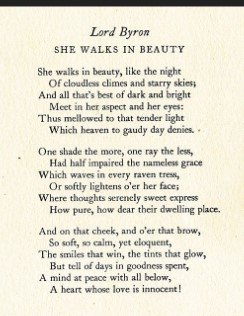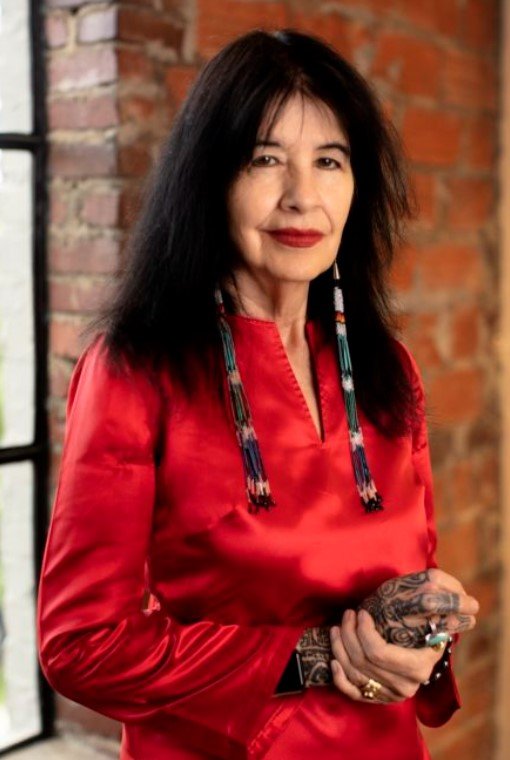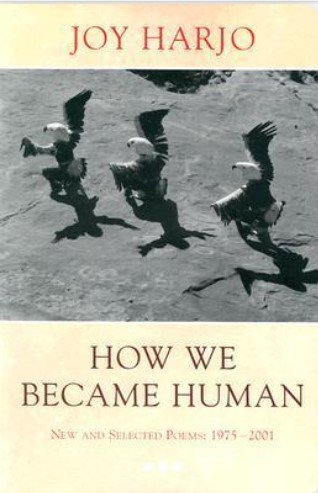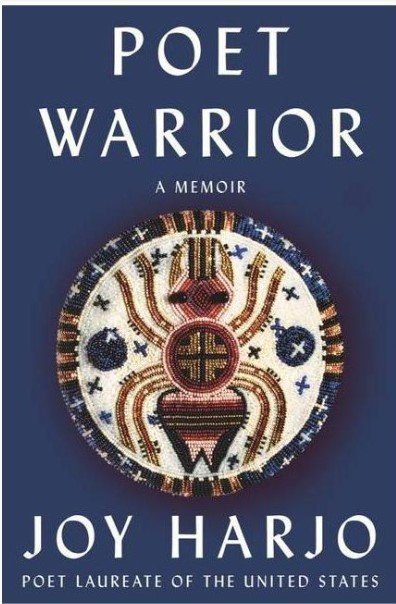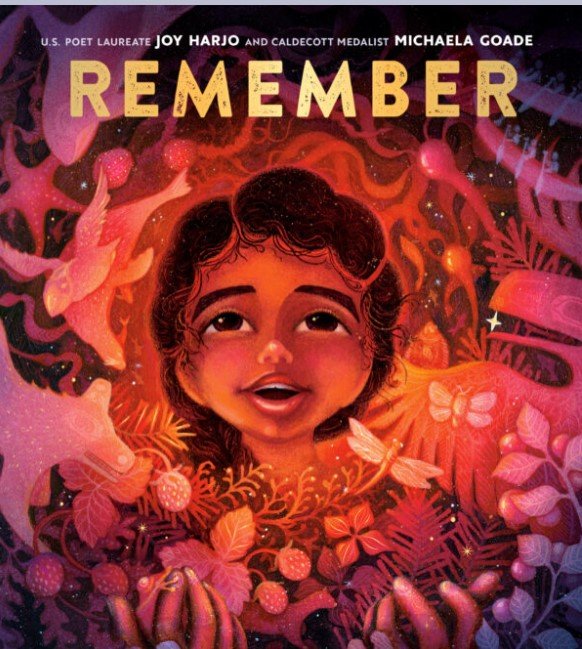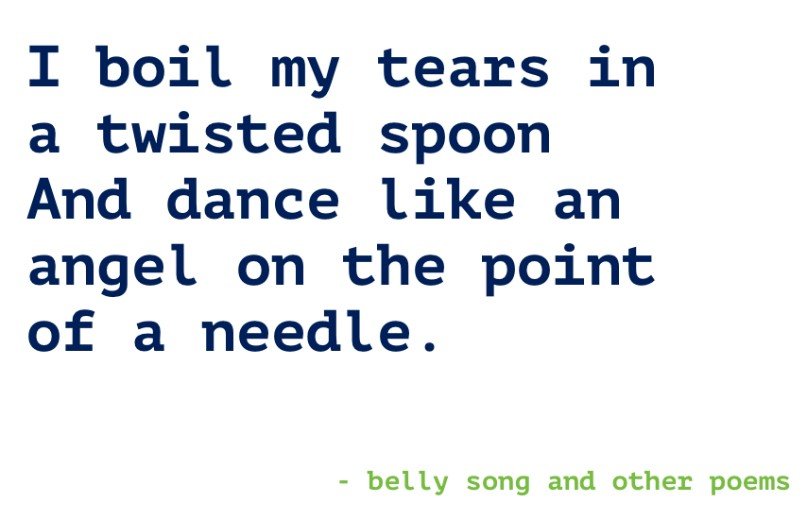Poetry Challenge #299-Dream On Nikki!
As soon as I began reading about our June 7th birthday poet dream songs swirled: Dreamer, Daydream Believer, Beautiful Dreamer. . . the Everly Brother’s crooning Dream-Dream-Dream…
Nikki Giovanni is all about dreams. Nikki was sickly child which made her, in her words, “Lucky!”
Lucky because she was always sniffling.” Why?
Because she writes in her website bio, she could stay home and read the books she wanted to read. And her family’s library was extensive and inclusive—no subjects were deemed too big, complex or taboo.
Nikki Giovanni has written many books of poetry, biographies and numerous children’s books including my favorite:
I Am Loved!
Poems with the late Ashley Bryan’s glorious art!
When Nikki became a mother, she moved into writing for children.
Nikki Giovanni was born in Knoxville, Tennessee, on June 7, 1943, and grew up spending the school year in Cincinnati and summers back in Knoxville. She’s on the faculty at Virginia Tech, where she is a University Distinguished Professor.
Her first poetry collections were published in 1968, and the list of awards Nikki Giovanni has received since reads like a novel. Perhaps because she is a committed explorer:
“My dream was not to publish or to even be a writer: my dream was to discover something no one else had thought of. I guess that’s why I’m a poet.”
Poetry Challenge #299
Dream ON!
Many of Nikki Giovanni’s poems deal with family and life. Read “Her Dreams” “Bay Leaves” and/or “The Longest Way Round” (above & below).
Think of a moment in your life and write a poem about it.
Play with the words until you get exactly the right ones.
Try having only one word on a line once or twice in your poem.
Set Your Timer for 7 Minutes
Start Writing!
Don’t Think About it, Write It!
Here are the links to the poems referenced here via Poetry Foundation, so you can read them in their entirety and/or read more of this beautiful dreamers work! (you’ll need to cut and paste them into your browser.)
https://www.poetryfoundation.org/poetrymagazine/poems/159788/her-dreams
https://www.poetryfoundation.org/poetrymagazine/poems/159787/bay-leaves
https://www.poetryfoundation.org/poetrymagazine/poems/159790/the-longestway-
round
Cindy Faughnan and I began this 7-Minute Poetry Challenge 2400+ days ago. Now we take turns creating prompts to share with you. Our hope is that creatives—children & adults—will use our prompts as springboards to word play time. If you join us in the Challenge, let us know by posting the title, a note, or if you want, the whole poem in the comments.
Click on Fishbowl link and sign up to receive email notifications from Kelly's blog (aka The Fishbowl):
All who subscribe, comment or share a poem will be entered in . . .
Poetry Challenge #298-Chewing On a Cigar
When anyone asks about Long Island, where it is in New York, especially in proximity to Manhattan, I describe it as being a long thin cigar sticking out of its mouth. And today’s poet, Walt Whitman, known as the first writer of truly American poetry, was born and raised at the head of the cigar, on the family farm in Huntington, Long Island.
The second of nine children in a farming family, Whitman lived from May 31, 1819 -1892 and often wrote about democracy, nature, love, and friendship.
His first collection Leaves of Grass, a thin volume of poem, called a quintessential collection of American poetry, was published in 1855, not by an established publisher—because none would take it—but by friends of his Whitman strong armed. Leaves of Grass has been in print ever since.
Whitman often wrote about political figures without naming the person. “When Lilacs Last in the Dooryard Bloom’d” and “O Captain, My Captain” are both written about Abraham Lincoln. Below is just the opening of “O Captain, My Captain” and a bit more of “When Lilacs…”:
This poem goes on for 16 stanzas. Read it in its entirely at Poetry Foundation:
Poetry Challenge #298
Chewing on the Cigar
Walt Whitman often ignored the standards of rhyme and rhythm and is said to be a father of free verse.
Choose one historical person or event and write about it without naming the person/event. You can write with rhyme or not. Try to capture the feeling you have about this person/event.
Set Your Timer for 7 Minutes
Start Writing!
Don’t Think About it, Write It!
Walt Whitman’s Birthplace is now a museum, interpretive center and the start of the Walt Whitman trail, 40 miles of glorious nature trails with nary a tobacco plant to be found, with Jayne’s Hill, elevation 400 feet, the high point. Here’s a photo taken when Whitman, then 65 visited.
Cindy Faughnan and I began this 7-Minute Poetry Challenge 2400+ days ago. Now we take turns creating prompts to share with you. Our hope is that creatives—children & adults—will use our prompts as springboards to word play time. If you join us in the Challenge, let us know by posting the title, a note, or if you want, the whole poem in the comments.
Click on Fishbowl link and sign up to receive email notifications from Kelly's blog (aka The Fishbowl):
All who subscribe, comment or share a poem will be entered in . . .
Poetry Challenge #297-Jingle Jangle Morning
Do ya think Robert Allen Zimmerman of Duluth, Minnesota sounds like a fitting name for a poet? Obviously Bob Dylan didn’t think it did either.
Twenty years after his May 24, 1941 birthday, Mr. Zimmerman aka Elston Gunn aka Tedham Porterhouse aka Blind Boy Grunt aka Robert Milkwood Thomas aka Boo Wilbury aka Sergi Petrov legally changed his name to Robert Dylan (“Dylan” in honor of poet Dylan Thomas).
If he’d waited a few years Bob might have added the middle name “Woody” or “Guthrie” in honor of his mentor Woody Guthrie, who’s storytelling songster style he emulated.
While Dylan, who was awarded the Nobel Prize in Literature in 2016, is “widely recognized as one of the greatest songwriters of the 20th century,” and called by Newsweek, in 2004 “the most influential cultural figure now alive," whether or not he should be called a poet is apparently debatable.
or was . . .
Poet biographer, literary critic Christopher Ricks wrote: “Dylan's lyrics not only qualify as poetry, but that Dylan is among the finest poets of all time, on the same level as Milton, Keats, and Tennyson. He points to Dylan's mastery of rhymes that are often startling and perfectly judged. For example, this pairing from ‘Idiot Wind,’ released in 1975:
Idiot wind, blowing like a circle around my skull,
From the Grand Coulee Dam to the Capitol”
The Norton Introduction to Literature included “Mr. Tambourine Man” in the 2005 edition.” Case Closed.
Poetry Challenge #296
Jingle-Jangle Morning
Along with his talent for clever rhymes, Dylan is known for ballads. So, hello! Let’s give it a go!
A ballad is a type of poem that tells a story, is often set to music, and usually rhymes. A traditional English ballad is composed of 4-line stanzas with a rhyme scheme of ABCB.
If you’re so inclined bust out a guitar or tambourine and sing out your rhyme.
One thing’s for certain, compared to Dylan, no matter how bad your voice, you’ll jingle-jangle.
Set Your Timer for 7 Minutes
Start Writing!
Don’t Think About it, Write It!
I’ve said it before and I’ll say it again: Visit Tulsa's Bob Dylan Center.
Cindy Faughnan and I began this 7-Minute Poetry Challenge 2400+ days ago. Now we take turns creating prompts to share with you. Our hope is that creatives—children & adults—will use our prompts as springboards to word play time. If you join us in the Challenge, let us know by posting the title, a note, or if you want, the whole poem in the comments.
Click on Fishbowl link and sign up to receive email notifications from Kelly's blog (aka The Fishbowl):
All who subscribe, comment or share a poem will be entered in . . .
Poetry Challenge #296-Refrain for Commenting
Every romantic worth their salt knows enough of Lord Byron’s poetry to spout “She walks with beauty, like the night” blah-blah-blah…that’s a prompt for another day. For today, May 17th marks the birthday of another poet in the family, the one who, in letters, addressed Lord Byron as “Dearest Duck.” Who might that be?
His wife of course! Anne Isabella Noel Byron, 11th Baroness Wentworth and Baroness Byron (née Milbanke; 17 May 1792 – 16 May 1860), nicknamed Annabella. According to Byron’s official Britannica biography, Lady Byron was “an unimaginative and humorless wife,” who bore (a daughter) and bored him. They separated after a year. Lady Byron, by all accounts much happier away from him, became a wordsmith and mathematician to boot! Who knew? What she wrote, we’ll leave to you to discover, for although dear Annabella is listed as a poet, we couldn’t find any of her poems. And so that, dearest ducks, is that!
Poetry Challenge #296
Refrain for Commenting
Pick a wise quotation from the list below or an adage you know. Use it as your title and write a poem that uses the line 3 or 4 times. You can use it exactly the way it’s written or you can change it slightly. You can embed it in the poem, split it onto two lines, or have it sit apart from the rest of your poem. However you use it, it will become a refrain. Use the repetition to get the sound you want.
Here are a few choices. Feel free to find others.
“Never let your sense of morals prevent you from doing what is right.”
“The unexamined life is not worth living.”
“Turn your wounds into wisdom.”
“The simple things are also the most extraordinary things, and only the wise can see them.”
"When the going gets tough, the tough get going."
"Leave no stone unturned."
"Hope for the best, prepare for the worst."
"Actions speak louder than words."
"Two wrongs don't make a right."
Set Your Timer for 7 Minutes
Start Writing!
Don’t Think About it, Write It!
Now that you’re done, here’s Lory Byron’s poem, “She Walks in Beauty.” But don’t delude yourself into thinking it’s about Annabella—rumor has it the only reason they married was to squelch rumors that he was having an “incestuous relationship” with his cousin.
Cindy Faughnan and I began this 7-Minute Poetry Challenge 2500+ days ago. Now we take turns creating prompts to share with you. Our hope is that creatives—children & adults—will use our prompts as springboards to word play time. If you join us in the Challenge, let us know by posting the title, a note, or if you want, the whole poem in the comments.
Click on Fishbowl link and sign up to receive email notifications from Kelly's blog (aka The Fishbowl):
All who subscribe, comment or share a poem will be entered in . . .
Poetry Challenge #295-This Land is Your Land
Joy Harjo is a member of the Muscogee (Creek) Nation—our first Native American Poet Laureate! She was born in Tulsa, Oklahoma on May 9, 1951, lives in Tulsa now, as she did during my years in Tulsa, and so in a way, I feel she is my personal poet.
However, after having served three terms as the 23rd Poet Laureate of the United States (from 2019-2022), for the past several years she has been all of our poet.
“I feel strongly that I have a responsibility to all the sources that I am: to all past and future ancestors, to my home country, to all places that I touch down on and that are myself, to all voices, all women, all of my tribe, all people, all earth, and beyond that to all beginnings and endings.”
-Joy Harjo
An internationally renowned performer and writer, Joy Harjo is the author of ten books of poetry, including Weaving Sundown in a Scarlet Light: Fifty Poems for Fifty Years, plays, memoires, and children’s books including a new picture book of her poem “Remember.” As a musician and performer, she has produced seven award-winning music albums including her newest, I Pray for My Enemies. She was the first Artist-in-Residence for Tulsa's Bob Dylan Center.
Poetry Challenge #295
This Land is Your Land
About her work, Poetry Foundation says: “Harjo draws on First Nation storytelling and histories, as well as feminist and social justice poetic traditions, and frequently incorporates indigenous myths, symbols, and values into her writing. Her poetry inhabits landscapes—the Southwest, Southeast, but also Alaska and Hawaii—and centers around the need for remembrance and transcendence.”
For this prompt, write a “Place” poem.
As an example, consider Harjo’s “Invisible Fish” (above) and how by using a few specific words she transports us to that dusty, desert. Try to likewise infuse your poem with symbols, myths, values specific to that place.
Set Your Timer for 7 Minutes
Start Writing!
Don’t Think About it, Write It!
Experience Joy Harjo’s Eagle Poem yourself; her words in her voice: Eagle Poem - Audio Poem of the Day | Poetry Foundation
Cindy Faughnan and I began this 7-Minute Poetry Challenge 2400+ days ago. Now we take turns creating prompts to share with you. Our hope is that creatives—children & adults—will use our prompts as springboards to word play time. If you join us in the Challenge, let us know by posting the title, a note, or if you want, the whole poem in the comments.
Click on Fishbowl link and sign up to receive email notifications from Kelly's blog (aka The Fishbowl):
All who subscribe, comment or share a poem will be entered in . . .
Poetry Challenge #294-Truth in the Night
Tra-lah! It’s May! The Lusty month of May! Let’s celebrate with another May, known for writing poetry and novels as true as the green of spring, fresh and pungent as pavement after a rain: poet/novelist May Sarton!
Born Eleanore Marie Sarton on May 3, 1912, in Belgium, her family moved to Cambridge, Mass in 1916 to escape the German army during WW1.
To say Sarton was born a poet, is no stretch. Her first series of sonnets was published when she was seventeen, in Poetry magazine, and seven years later in her first published collection, Encounter in April.
May Sarton wrote poetry, novels, documentary scripts for the war office… Unabashedly—shockingly to some—Sarton shared her truth. Truths many didn’t want to read, at the time, but that didn’t dull her quill.
“Examined as a whole," Lenora P. Blouin wrote in May Sarton: A Bibliography, "the body of May Sarton's writing is almost overwhelming. It reveals an artist who has not remained stagnant or afraid of change. 'Truth,' especially the truth within herself, has been her life-long quest."
Poetry Challenge #294
Truth in the Night
In her poem Bliss (above), Sarton takes us into her bedroom to see, hear, feel with her as she lay away in the middle of the night. It’s a simple moment and Sarton’s language is simple, but rich.
For this prompt, think of one time, one moment, one special place.
Write a poem describing the look, feel, sound of that moment.
Conclude your poem as Sarton did in “Bliss,” with a line summarizing the feeling that moment evokes in you.
Set Your Timer for 7 Minutes
Start Writing!
Don’t Think About it, Play like Millay!
May Sarton’s poetry and especially her novels are fabulous reading. Here’s Early Bird Books List of May Sarton’s Best Books.
Cindy Faughnan and I began this 7-Minute Poetry Challenge 2400+ days ago. Now we take turns creating prompts to share with you. Our hope is that creatives—children & adults—will use our prompts as springboards to word play time. If you join us in the Challenge, let us know by posting the title, a note, or if you want, the whole poem in the comments.
Click on Fishbowl link and sign up to receive email notifications from Kelly's blog (aka The Fishbowl):
All who subscribe, comment or share a poem will be entered in . . .
Poetry Challenge #293-Brush Up Your Shakespeare
Everyone has heard of William Shakespeare, whose birthday could be today since the exact date isn’t known. Records show he was baptized in April 1564. (If you know how or why April 26th is the date we celebrate let us know.)
We know the Bard wrote at least 39 dramatic plays, many of which are still regularly performed.
And, according to Oxford, added 1700 words to the English language. (There’s some debate about the veracity of that number but he’s credited with 420 for sure.) Here’s a list—No. Stop! Don’t look at the list now. Save the clicking for later. NOW…It’s Shakespeare’s day, join the celebration!
Hit it Cole! Brush Up Your Shakespeare, start quoting him now… from Kiss Me Kate:
Poetry Challenge #293
Brush Up Your Shakespeare
Maybe you have a favorite line from one of his plays or sonnets:
“Shall I compare thee to a summer’s day?” (Sonnet XVIII)
“To be, or not to be: that is the question” (Hamlet)
“But, soft! what light through yonder window breaks?” (Romeo & Juliet)
“Tomorrow, and tomorrow, and tomorrow,
Creeps in this petty pace from day to day” (Macbeth)“All the world’s a stage
And all the men and women merely players:”
Let’s celebrate Shakespeare by putting one of his lines in a poem of your own. You can use the whole line as the first, last, or middle line of your new poem.
Or, if that doesn’t work for you, try writing one word on each line the way you would for an acrostic poem and begin your poem’s lines with the word from the quote.
Set Your Timer for 7 Minutes
Start Writing!
Don’t Think About it, Shakespeare It!
Once you’ve finished your poem, reward yourself with a movie. There are zillions of Shakespeare inspired movies out there. Or popped some corn and go for pure fun: Shakespeare in Love!
Cindy Faughnan and I began this 7-Minute Poetry Challenge 2400+ days ago. Now we take turns creating prompts to share with you. Our hope is that creatives—children & adults—will use our prompts as springboards to word play time. If you join us in the Challenge, let us know by posting the title, a note, or if you want, the whole poem in the comments.
Click on Fishbowl link and sign up to receive email notifications from Kelly's blog (aka The Fishbowl):
All who subscribe, comment or share a poem will be entered in . . .
Poetry Challenge #292-Ethridge Knight, Simile Put
Etheridge Knight was born on Apri1 19, 1931. He dropped out of high school and joined the army and was wounded in Korea, the injury led to drug addiction and in 1960, convicted of robbery, 8 years imprisonment.
While in prison, Knight, already known for giving “toasts” began to write poetry. His toasts were were precursors to rap, really, in that, as Poetry Foundation put it, Knight’s toasts were “long, memorized, narrative poems, often in rhymed couplets.”
Knight’s first poetry collection, Poems from Prison, was published in 1968. Following is a quote from the back cover:
“I died in Korea from a shrapnel wound, and narcotics resurrected me. I died in 1960 from a prison sentence and poetry brought me back to life.”
Ethridge Knight’s 1973 collection, Belly Song and Other Poems, was nominated for the Pulitzer Prize and National Book Award.
Here’s a poem from that collection entitled, Cell Song:
Poetry Challenge #292
Simile Put
Ethridge Knight’s poetry didn’t skirt the issues, or would anyone call it “flowery.” The images and situations he writes about are vivid and visual largely because of the similes and metaphors he created, as in these examples:
For today’s prompt try describing a feeling or situation using simile or metaphor so real, raw and vivid the image comes to life on the page.
If you’d like, let that image stand alone. Or craft a poem around it.
Set Your Timer for 7 Minutes
Start Writing!
Don’t Think About it, Image it!
For more, check out zoroboro.com for a birthday commemoration of Knight’s poem snippets and quotes.
And zip over to Poetry Foundation to access Ethridge Knight’s poems:
Cindy Faughnan and I began this 7-Minute Poetry Challenge 2400+ days ago. Now we take turns creating prompts to share with you. Our hope is that creatives—children & adults—will use our prompts as springboards to word play time. If you join us in the Challenge, let us know by posting the title, a note, or if you want, the whole poem in the comments.
Click on Fishbowl link and sign up to receive email notifications from Kelly's blog (aka The Fishbowl):
All who subscribe, comment or share a poem will be entered in . . .




















